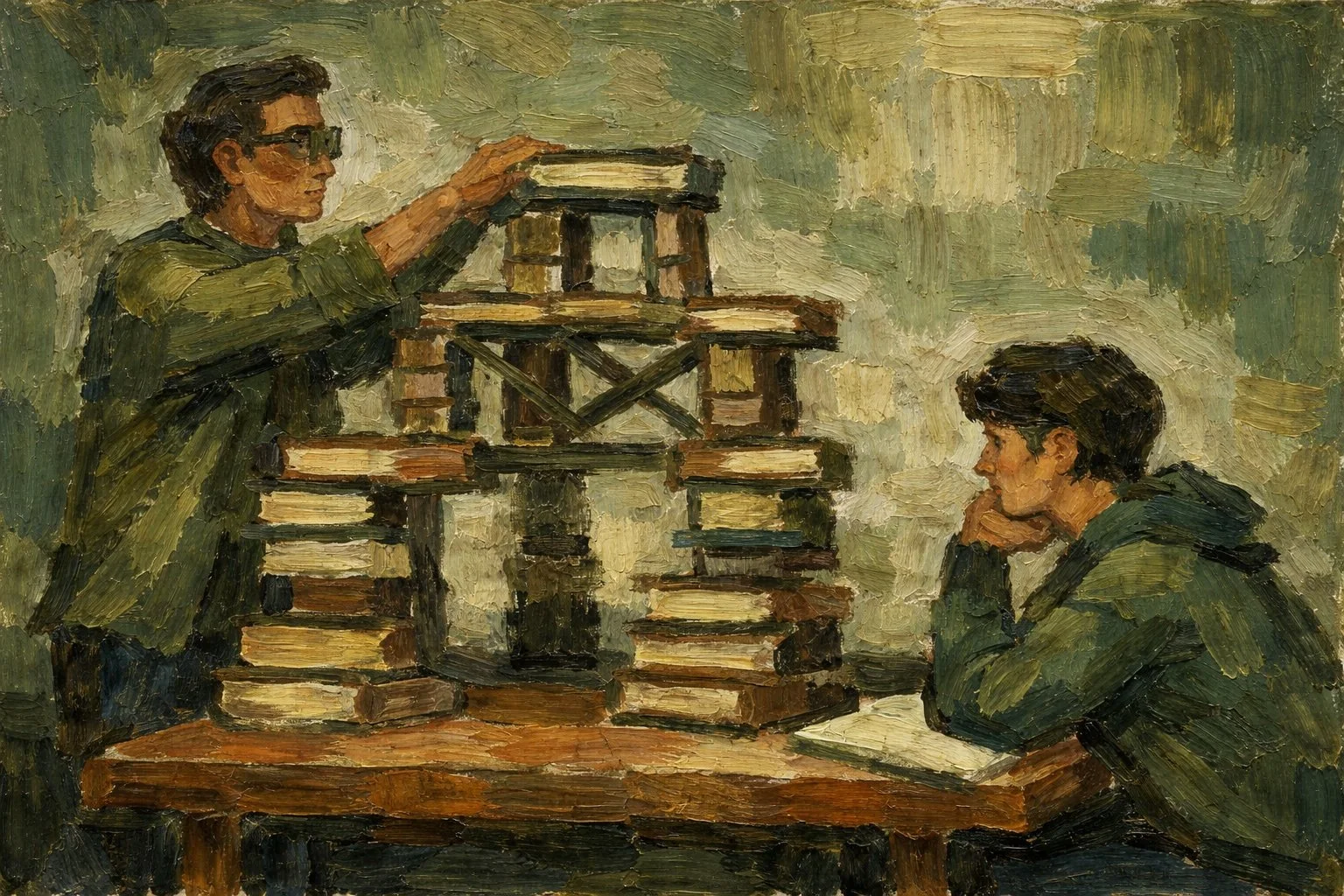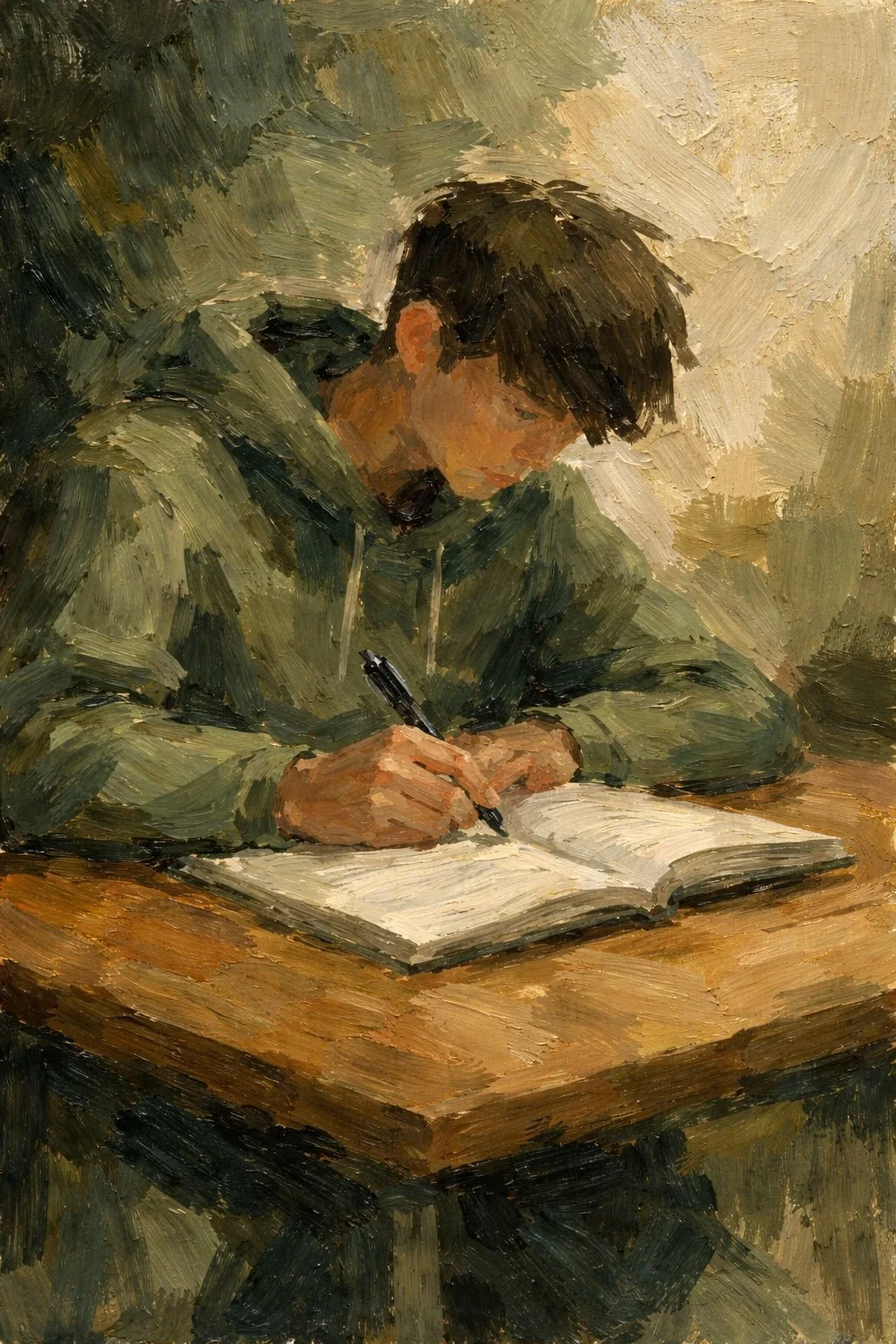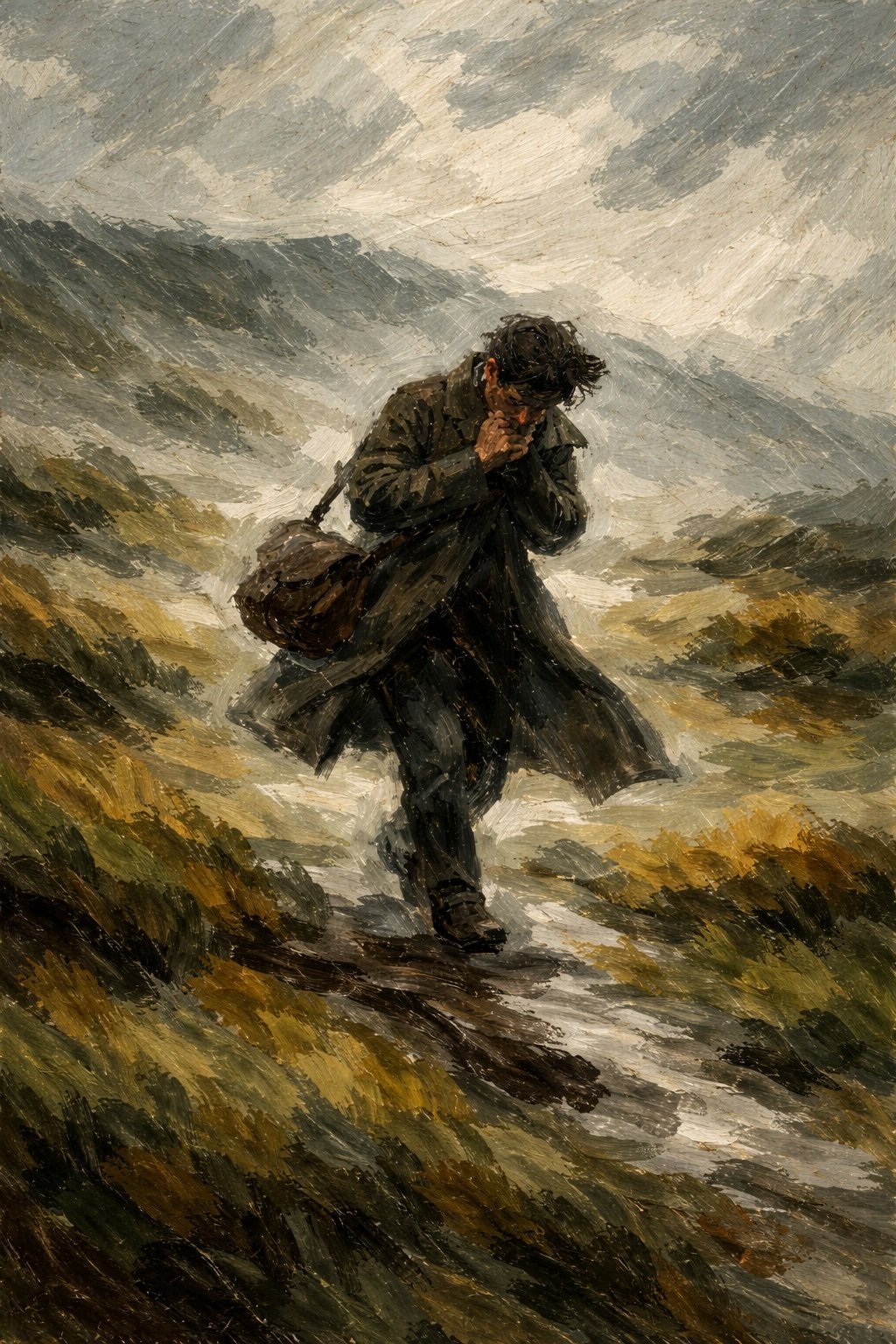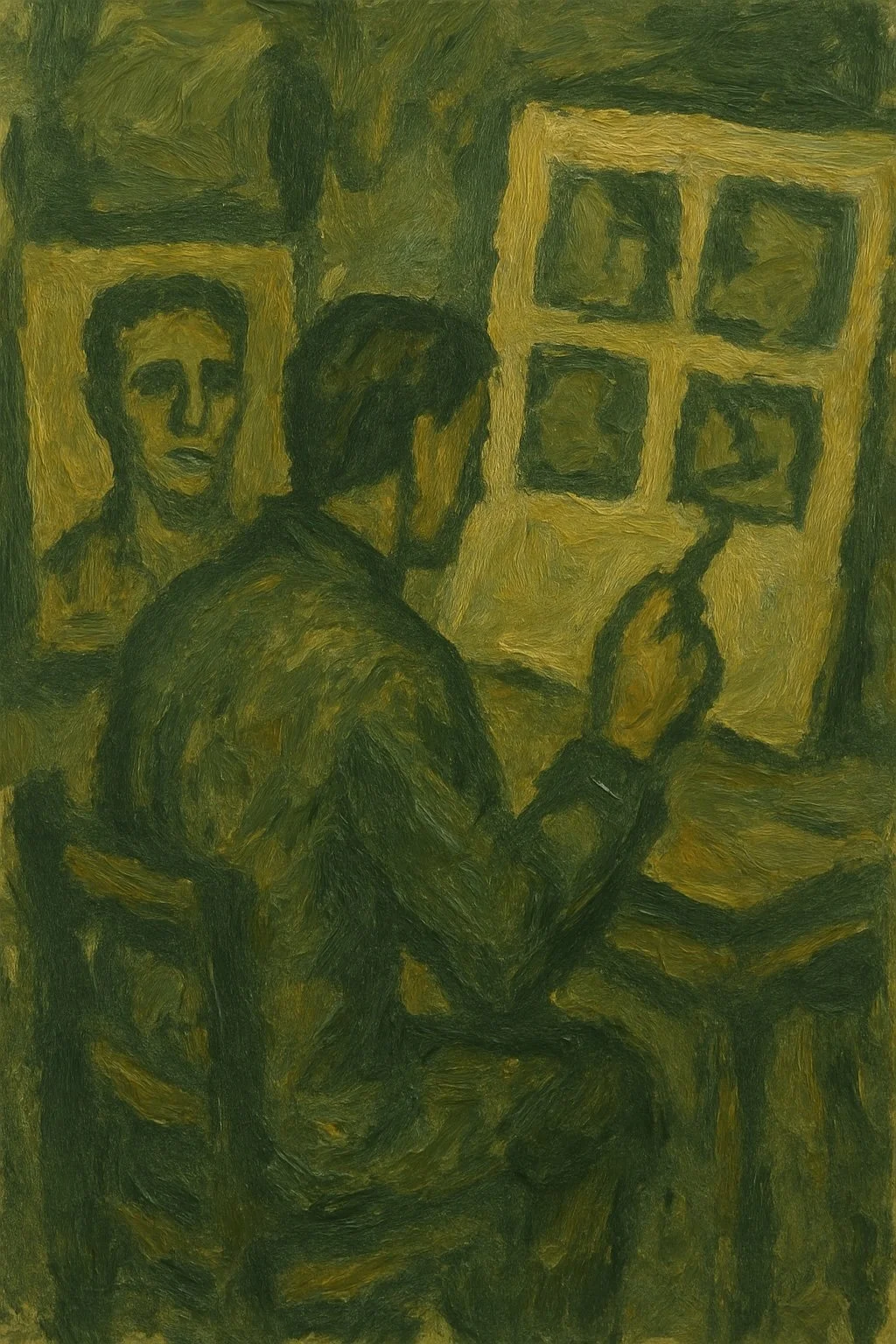Welcome to our informational blog.
Topics covered include literary theory and practice, academic writing techniques, philosophy of education, and explanations of our methods for strengthening creative intelligence.
Temporary Structures: Writing Coaching and Scaffolding
The most valuable outcome of coaching is not a polished draft, but a writer who knows how to approach the next draft alone. When scaffolding is gradually removed, writers learn to trust themselves. They begin to recognize patterns in their own process and anticipate the kinds of support they need. At that point, the writing mentor’s role has succeeded precisely by making itself less necessary.
How Creative Writing Prepares High School Students for College
A creative writing mentor models a way of engaging with language that values risk, patience, and revision as forms of thinking. In one-on-one tutoring, a mentor can help students see that uncertainty is not a flaw in their work but a starting point. Rather than asking whether an essay meets expectations, the mentor asks what the student is trying to understand and how the writing might help them get there.
Writing from the Inside of Experience
A skilled fiction writing coach helps an author notice when their prose steps away from lived experience and into abstraction. This does not involve imposing a philosophical framework onto the work. It means listening closely to the language on the page and asking whether the scene is being shown from inside the experience or summarized from outside it.
A Christmas Reflection on Writing as a Gift
Christmas is an apt moment to reflect on generosity that does not immediately circle back to the self. An author mentor invests time, energy, and thought without knowing what the writer will eventually produce or become. There is no guaranteed outcome. The value lies in the act itself, in the commitment to another person’s growth.
Truth And Consequence: How Pragmatism Shapes American Fiction
Pragmatism discourages the symbolic excess that floats above the story’s lived reality. It asks the writer to pay attention to consequence, sequence, and pressure. Scenes matter because they change something. Characters matter because they act and respond. Beliefs matter only when tested. Many developing writers arrive with strong ideas about what their work is “about.” They want the novel to express a belief or settle a question. A book writing coach working from a pragmatic sensibility helps redirect the writer’s attention from intention to effect.
Learning in Motion: Liberal Arts and the Writing Life
A creative writing mentor helps the writer make use of the raw materials gathered through the liberal arts sensibility. Mentorship provides a space where ideas can be tested, clarified, and shaped into narrative form.
How Narrative Shapes Our Understanding of the Self
Through these conversations with a creative writing mentor, something interesting happens. The writer begins to see the character as a product of their own narrative choices, not as a fixed entity. They learn to shape identity with greater care. They experiment with how a character interprets an event, how they revise their story of it, and how those revisions open up new emotional territory. Over time, this attention changes the way a writer thinks about themselves.
How Poets Build Structure from the Land
Many early drafts contain traces of landscape that the writer has not yet recognized. A creative writing coach can point out how a poem shifts its tone when it moves from an interior scene to an outdoor one. An author mentor can also help a writer return to forgotten landscapes that still hold emotional charge.
The Surprising Freedom of Writing with Constraints
A fiction writing coach often works with a writer at the moment when a project feels too loose or too undefined. Writers sometimes arrive with an idea that holds promise but lacks shape. The coach listens for the underlying movement of the story. They pay attention to the hints of rhythm or tension that appear in scattered moments. Through conversation, the coach helps the writer identify a possible structure that aligns with the story’s instinctive direction.
Ritual, Presence, and the Long Apprenticeship of Writing
The presence of a creative writing mentor can help a writer understand what they need in order to work consistently. Mentors often observe patterns that writers overlook. They might notice that a writer produces stronger work during shorter sessions or that they benefit from beginning with a specific warm-up exercise. These insights become part of the writer’s private toolkit.
New Directions: Reading Outside Your Genre with the Support of a Writing Consultant
An online creative writing consultant observes a writer’s habits, patterns of thought, and preferred models. They also pay close attention to how the writer responds to new forms. This perspective allows the consultant to recommend texts that broaden the writer’s range and illuminate specific craft questions the writer is facing.
Learning to Remember: The Bildungsroman and the Writer’s Own Education
The best novel coaches understand that the writer’s craft and the writer’s consciousness are inseparable. To help someone shape a novel is to help them clarify their relationship to knowledge, power, and self-knowledge—the same concerns that animate the Bildungsroman. When done well, this relationship embodies the very philosophical principles that the Bildungsroman explores: autonomy, dialogue, moral perception, and the slow maturation of judgment.
Learning to See Like a Writer: The Craft of Observation and the Transfer of Artistic Vision
A creative writing mentor helps a writer notice what they’ve overlooked. Book coaches train a writer’s attention, teaching them how to remain in contact with the real. Over time, the writer’s eye refines itself. They begin to sense what deserves description, what carries emotional charge, what reveals human truth.
Learning as Interpretation: Hermeneutics and the Act of Reading the World
Book coaching services align with the philosophical lineage of hermeneutic pedagogy: they are dialogic, relational, and transformative. They assume that learning happens through conversation and reflection, not through prescription. They recognize that each writer’s project is a world unto itself, one that must be understood on its own terms before it can be guided.
Consciousness in Motion: The Continuing Influence of Henry James
Writers who study James’ work learn that the tension between the inner and outer world can carry as much dramatic force as action. To express that tension effectively, they often need the guidance of an outside reader who can observe where perception disperses. A writing consultant reads for the movement of consciousness to sharpen the writer’s sensitivity to how awareness is structured within a text.
Trust Thyself: Emerson, Thoreau, and the Creative Dialogue Between Writer and Mentor
The practice of manuscript consultation aligns naturally with the transcendental project. Emerson urged the artist to “trust thyself,” yet he also knew that trust develops through conversation. The early Transcendentalists were not hermits; they were correspondents, debaters, and teachers. Their transcendence was communal—a fellowship of minds testing each other’s perceptions against the infinite.
The Pedagogy of Unknowing: Coaching What Can’t Be Taught
Writing is an act of exploration. Each writer must discover, through trial and error, what kind of stories only they can tell. The creative writing coach’s role is to accompany the writer on that journey and cultivate an environment where uncertainty can thrive without fear.
The Writer as Teacher: What Fiction Teaches About Knowing and Being Known
The novelist creates conditions for insight, builds worlds that demand thought, empathy, and moral risk. The online writing coach, in turn, creates those same conditions for the writer. Both work in the same tradition of mentorship that has existed since the first dialogues of philosophy: one mind guiding another toward a clearer way of seeing.
Beyond Craft: The Philosophical Imagination of the Writer
A creative writing mentor is a guide through the moral and imaginative wilderness that every artist must cross. Early mentorship often centers on craft: sharpening sentences, cutting redundancies, clarifying plot. But as a writer matures, the mentor’s role becomes more reflective.
The Art of Becoming: Bildung and the Writer’s Inner Formation
A skilled literary coach embodies the role of the Humboldtian mentor: someone who helps the writer engage in genuine formation rather than performance. Coaching provides a space in which the writer’s development is guided by inward growth. It is, in essence, a practice of Bildung adapted to the modern creative life.





















